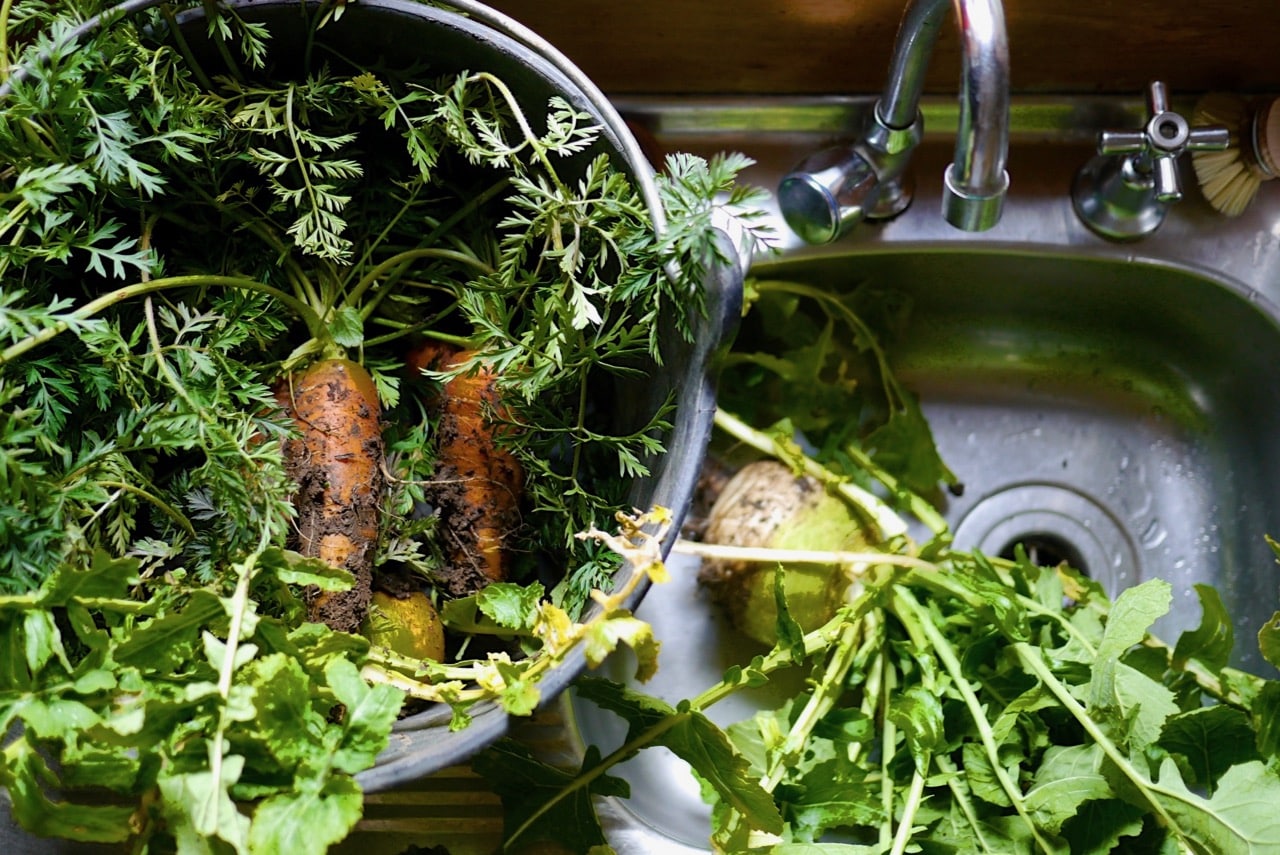
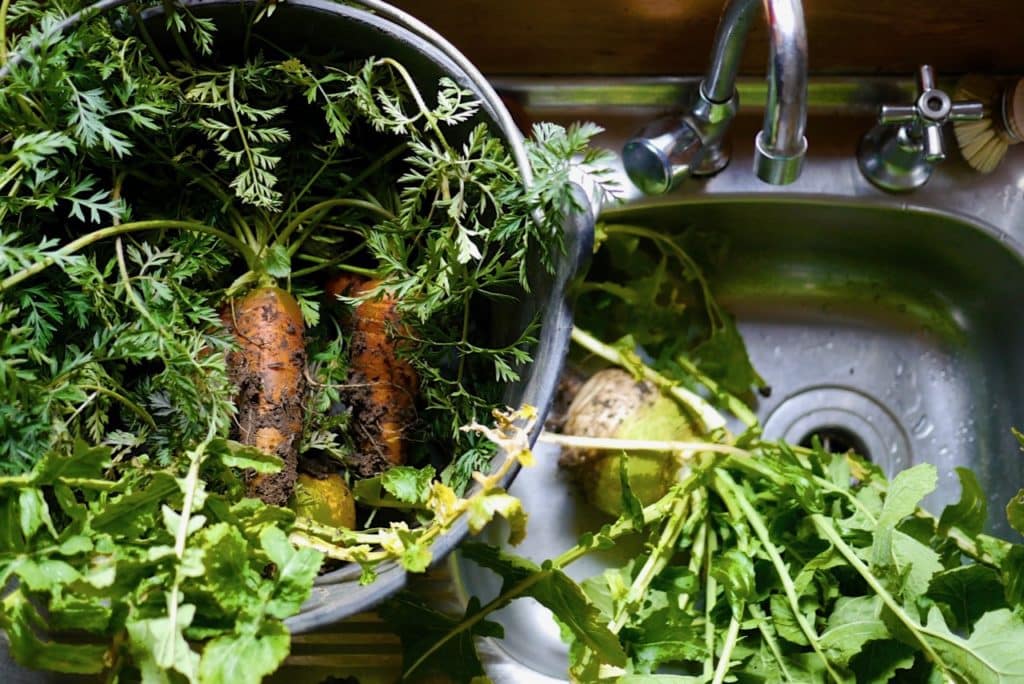
‘What should we do in a crisis?’ is a question we get asked a lot, as permaculture educators. In light of the current situation/s, here’s a few thoughts to add to your mix.
Preparedness has always been at the heart of permaculture design and thinking. The idea of self and community-level reliance, that we should not seek to rely entirely on outside market forces to supply all of our food, all of our energy, our water, and all of our medicines – just makes good sense.
This doesn’t mean that building a bunker-fortress, and weaving your own toilet paper is the goal here. Far from it. Permaculture preparedness just means… well, being prepared… within your means, for whatever unexpected events may come to your community.
I’m working from an assumption here that you, dear reader, live in a western country where most things – from your food supply to your heating, medicines and even music playback, are currently outsourced largely to corporations whose supply chains (and decision making) are outside of your control.
So what does cultivating preparedness look like, if this is you?
Preparedness in permaculture can look like:
- Growing some of your own food
- Having enough non-perishable food supplies (ie a decently stocked pantry) to last you a month or two
- Installing + maintaining a rainwater tank
- Some level of energy resilience (maybe batteries, fuel, solar power, woollen blankets or firewood)
- Having some cash in small bills stashed away for short, sharp shocks
- Cultivating excellent relationships with your neighbours
- Supporting your local food systems and farmers to increase local food security
- Volunteering in your community to increase resilience for everyone
- Supporting local businesses and services rather than Big Box Stores, to ensure they remain community resources.
- Donating to your local food bank
- A gazillion other things – see our Permaculture Archives for some more ideas.
Many deep-thinking folks have written about (and modelled) preparedness at this level – I’m thinking of people like Sharon Astyk and Rob Hopkins and many, many more.
There’s a lot you can do, instead of freaking out or going into ‘fortress thinking’ mode.
So what does permaculture preparedness look like, in the context of a Pandemic?
Firstly, see list above.
Secondly, preparedness looks like taking some basic precautions (there’s a good article here) like cautious hygiene, ensuring you have enough medications, and building up your pantry, to see your household through a few weeks or months of staying at home if needed.
Preparedness is emotional, too. So it’s also about mentally working through what YOUR town, street or suburb will look like – and how you will chose to function and behave – once it is people you know who are getting sick, rather than some sort of faraway ’them’.
Ah yes, the faraway ’them’. The people somewhere over there. The zombies of the apocalypse (insert any ’them’ you like into this metaphor – and oh, how we do). But they’re not Us, our brains sometimes say. Not we here, our people, the ones we talk to daily, and share childcare with, and invite over for dinner. We’ll be fine, right?
Because no-one’s told us that we won’t be fine, so that settles it – no need to prepare for anything.
I’m going to leave that huge ’them’ and ‘us’ thing… that ‘othering’ which is sometimes applied to other communities, other countries, other ethnic groups, especially in times of crisis… right here, because it is too heavy to either unpack, or carry properly, for this article – but please do try this thought experiment:
What would your preparedness, and your behaviour, look like – when it’s your community, YOUR family, getting sick? How will you behave? Who will you care for? Where will you care for them? Who will you share your well-stocked pantry with, if need be?
And most importantly: how can you help create preparedness in your community, so that all of you are as prepared as you all can be?
Can you donate to your local food bank? Help out with community projects? Provide surplus lemons / blankets / legal expertise to others, to ensure your community is as well as it can be – in body, mind and ecosystem health – for whatever shocks may come?
Cultivating preparedness and a permaculture perspective can help you, your household, and your community to be more resilient – no matter what the future holds.
But no-one around me is prepared, therefore I don’t need to be… right?
In our current society, we’ve seen examples – time and time and time again – of people being told by the media and by leaders ’no need to worry – keep working, consuming, holidaying! There is no problem here’ …until the very last minute, before very real crises affected everyone.
Some of these crises have been driven by global finances, civil unrest, or weather events. But the most recent one that I’ve seen, and been in the middle of, had bushfire on its breath – affecting thousands and thousands of people in Eastern Australia, most of them completely unprepared.
The power outages, the food shortages, the lack of drinkable water, the loss of mobile phone coverage, the lack of access to roads and transport… it all happened. Right in the middle of our ‘modern world’.
The system fell down. That same system that we’re told is so certain that we don’t need to do anything for ourselves anymore. That system that so many of us all rely on, for pretty much every. single. thing… instead of being prepared, ourselves.
Preparedness can help you, your household, and your community to be more resilient, in times of crisis.
Already feeling prepared?
Great. Get out there and help your community to get prepared also: Donate to your local food bank. Have discussions with neighbours. Volunteer on projects that increase community resilience. Do what you can, where you are.
And if there’s no pandemic where you live, this time around? Lucky you. Carry on. Permaculture preparedness makes all the sense in the world, each and every day – no matter where the news cycles are at.
Because anything can happen, and as we’ve seen recently, there’s plenty of ‘unprecedented’ events that can and will impact you and those around you.
Being prepared just makes sense, and always has done. It’s a solid ethical choice, as much as a pragmatic one.
The more resilience you can infuse and actively create in your household, backyard and community, the better off you and everyone around you will be, no matter what.
Community is Key
Community is the key here. Preparedness of the ‘fortress’ type is not what we consider resilience – it’s not long-term effective or desirable, on any level. As Prof Tim Flannery said about the climate crisis: “no-one can outrun this – we have to stand and face it”. Together.
The same is true for many of the shocks we’ll face as communities. So get prepared on a household level, and then think about what preparedness looks like in your community, and work towards that.
Permaculture preparedness is all this and more. Climate action is a form of preparedness. So is energy efficient passive homes – and backup, renewable power sources. So is regenerative agriculture – farming in a way that increases soil carbon and ecosystemic health, for the benefit of all, while growing clean, local food.
Learning new skills so you don’t have to buy or outsource simple home ingredients, medicines and staples – that’s preparedness too.
And as you go, preparing in all these ways, you’ll find all kinds of benefits. You’ll become more connected with your community, your garden and to your ecosystem on the good days. And you will all be better prepared for the bad days.
So use whatever resources that you have to make a start, and work outwards from there.
This is how we create a world worth living in, and a future worth fighting for.
- All our articles about building a pantry + food preserving
- All our articles about growing food
- All our articles about community
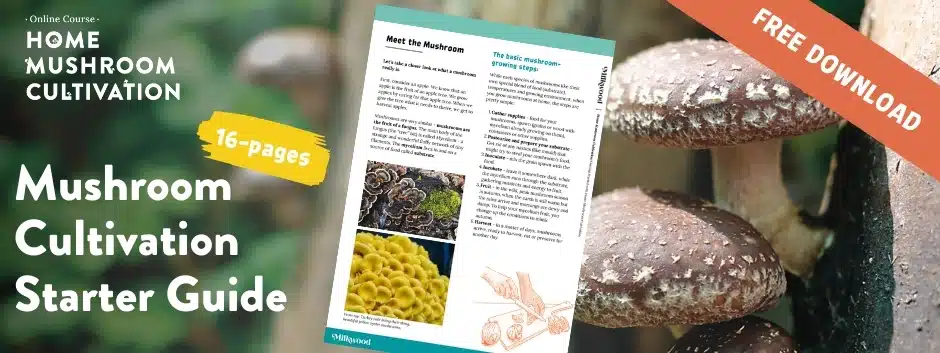
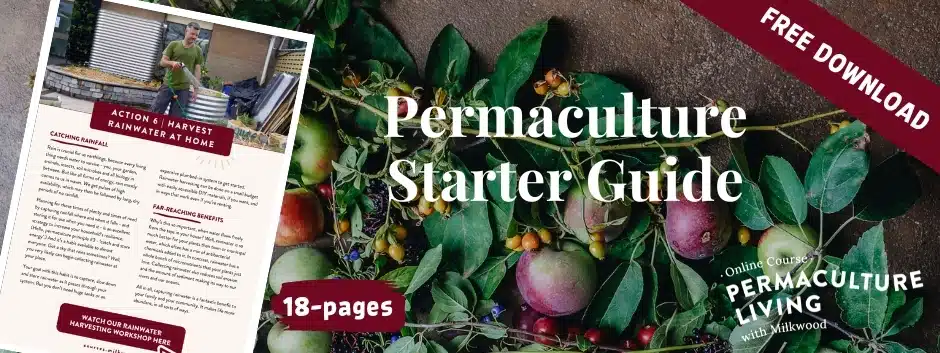
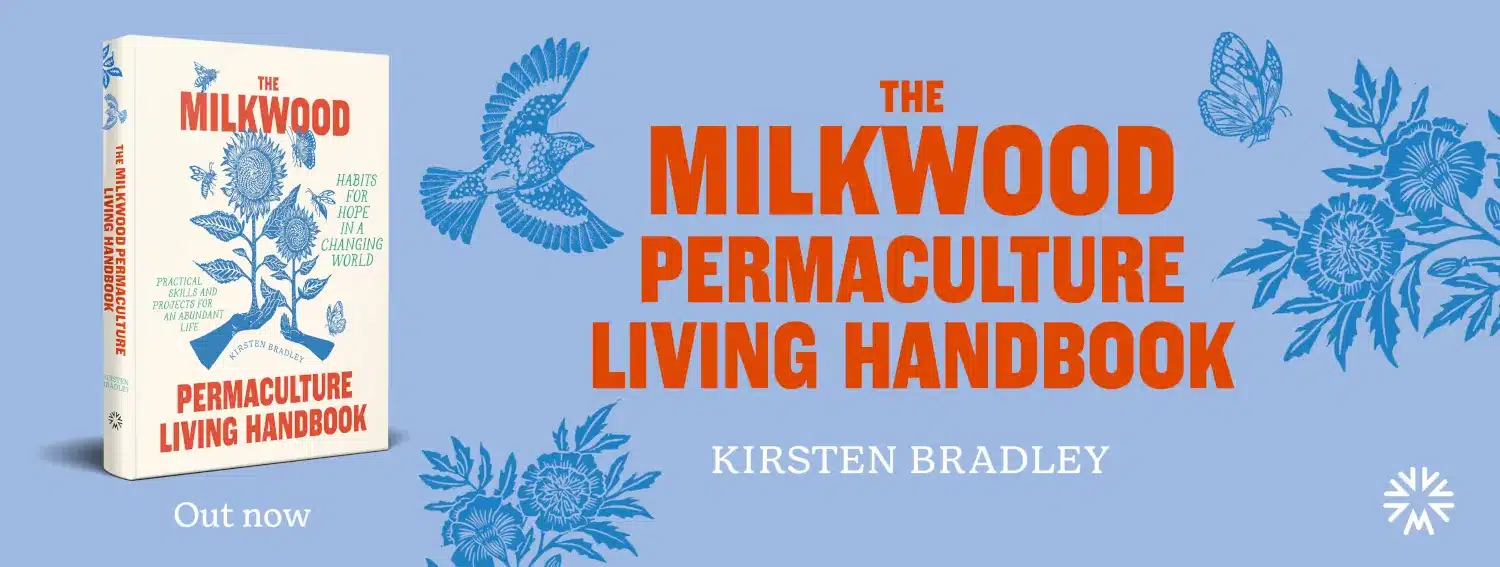
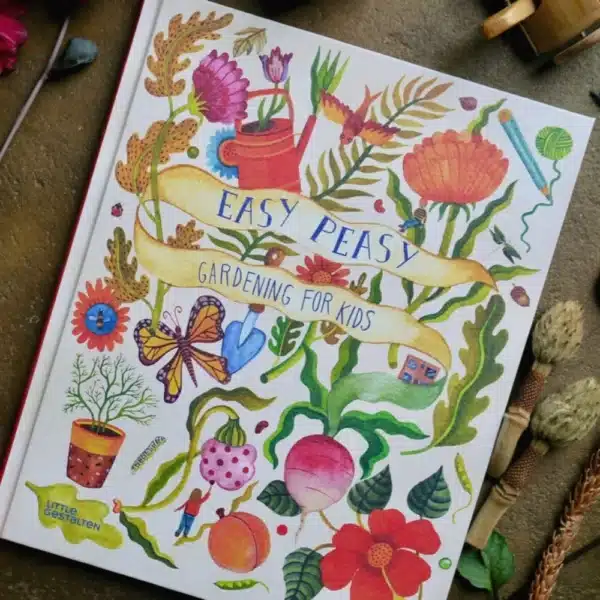
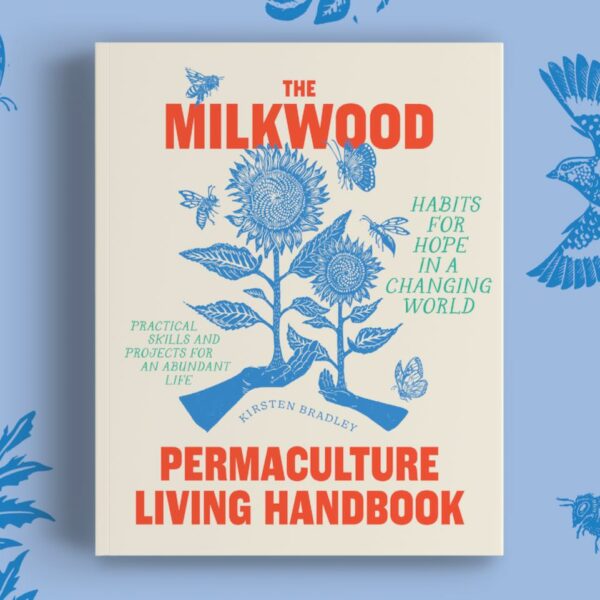
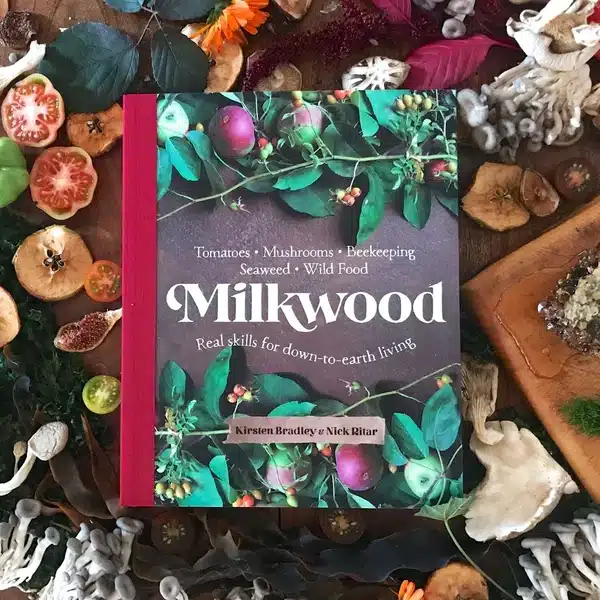






As we are seasonally surrounded by fires north of us in Canada and south of us in Oregon state, my team added wildfire as a secondary focus (after earthquakes) for our Bainbridge Prepares organization a few years ago. And then just two weeks ago added pandemic as a third focus.
Your recent excellent pandemic article is excellent. Given that permaculture is the door into which I entered community preparedness, which directly led to both my nonprofit bainbridgeprepares.org and my book preparedneighborhoods.com, your writing resonated strongly with me.
Well done, Kirsten…you are much appreciated!
Agreed, great article i feel more calm and focused towards preparedness